copyright infringement
Latest
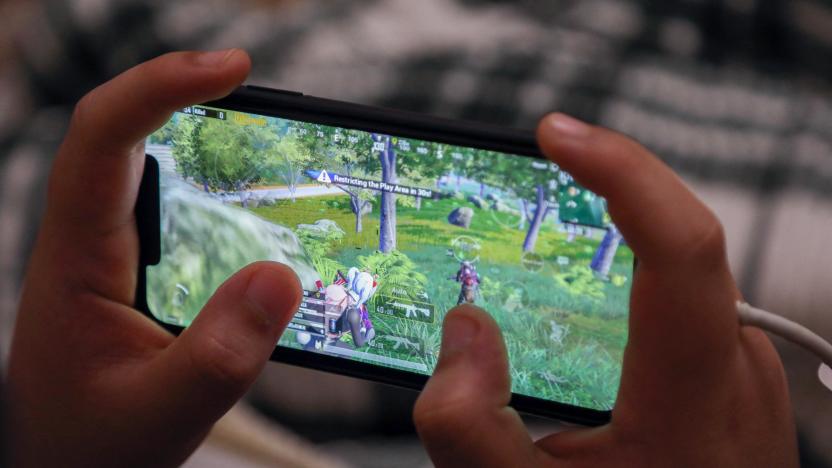
'PUBG Mobile' maker sues copycat game and app stores that hosted it
When you're the progenitor of an entire gaming genre, imitation is not the sincerest form of flattery. It's the sort of thing that gets you dragged into federal court.

Twitch streamers receive a flood of music copyright claims for old clips
Twitch streamers have received a deluge of DMCA takedown requests over music in old clips, risking bans unless they take actions that may not be realistic.

Lawsuits claim Amazon, Apple and more are streaming unlicensed music
When you walk into a bar, hotel or store, you probably hear music. The same goes for when you tune into a TV channel or radio station. Those businesses are supposed to pay royalties to the artists for using their music. Collection firms like Pro Music Rights (PMR) are tasked with monitoring these things. And they've had a lot more work on their hands, now that they need to keep track of streaming services which must properly license the songs they add to their libraries. PMR -- which sued Spotify last year -- alleges that 10 of the biggest services have been streaming unlicensed music from artists the company represents, and has filed lawsuits against each.
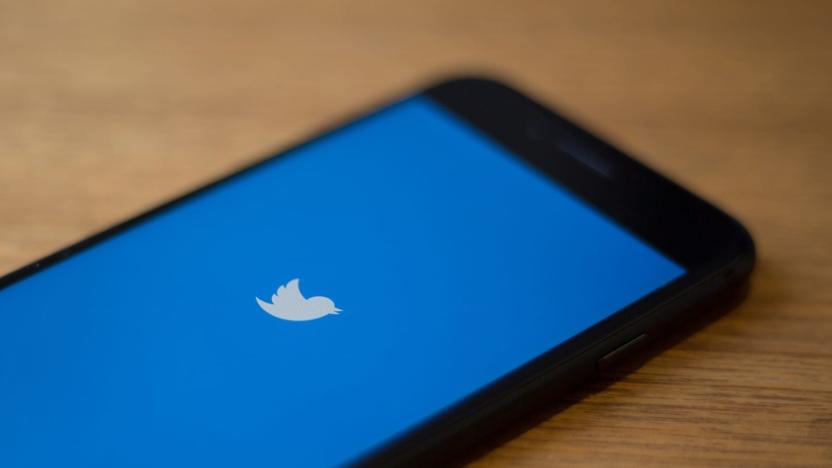
Twitter temporarily banned pro-Trump meme creator Carpe Donktum
This afternoon, Twitter caused a stir when it suspended the prolific pro-Trump meme creator, Carpe Donktum. People were quick to speculate that Carpe Donktum was suspended for his alleged connection to the violent video shown at Trump's Miami resort last week. But after his account was restored, Donktum shared a video stating that he was suspended over a copyright infringement claim.

YouTube sues user who extorted others through fake takedown requests
A lawsuit filed by YouTube yesterday claims that a user abused its copyright infringement reporting system to extort fellow YouTubers and carry out a swatting attack. YouTube alleges that Christopher Brady, of Omaha, Nebraska, filed dozens of Digital Millennium Copyright Act (DMCA) takedown notices, which falsely claimed that materials posted by other users infringed his copyrights. Not only were the takedown notices bogus, they were allegedly part of Brady's plan to extort money from those users.
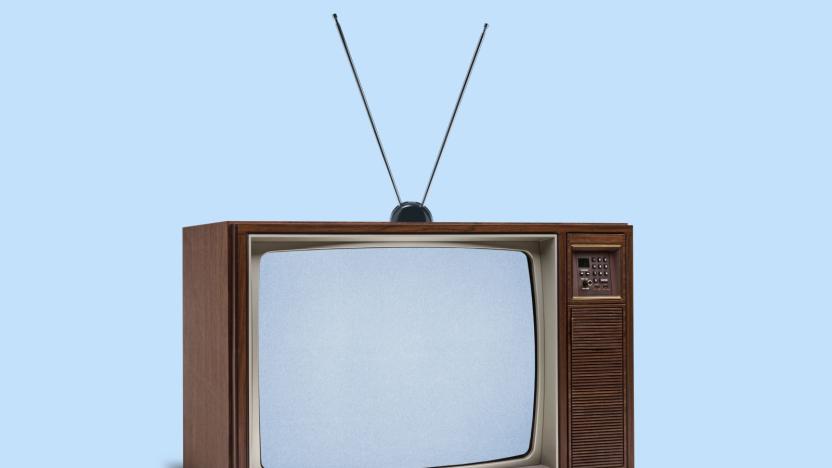
Major broadcasters sue nonprofit TV service over copyright infringement
CBS, ABC, NBC and Fox have joined forces in a fight against Locast, a nonprofit streaming service funded in part by AT&T Inc and Dish Network Corp. The service is marketed as a distribution alternative for people who can't get local TV signals through their antenna, but it's also earned a reputation as a free alternative for consumers who are tired of their cable bills. According to The Wall Street Journal, the four networks claim Locast is retransmitting their local TV signals without permission, therefore violating copyright law.

Peloton slapped with a $150 million lawsuit for playing unlicensed music
Music publishers are suing Peloton, the maker of the connected exercise bike, for failing to license songs it plays in its streaming spinning classes. The lawsuit was filed on Tuesday by the National Music Publishers Association in the U.S. District Court of the Southern District of New York, and seeks $150 million in damages.
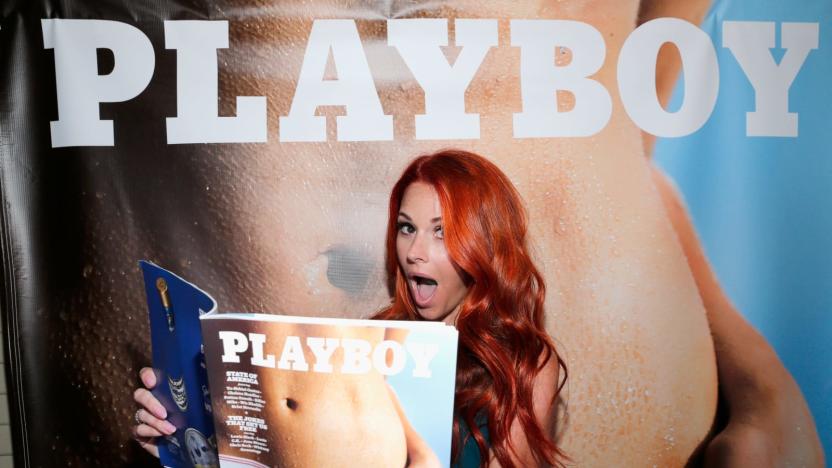
Playboy's legal victory could change your freedom to link
A European legal battle may have just set precedent for when you can and cannot link to material without permission. Playboy's Dutch publisher Sanoma sued commercial media site GeenStijl to take down links to their photos of a TV celebrity, claiming it earned them unfair profits. Back in April, the EU court of justice's Advocate General opined that the decision would likely favor the defendant's press freedom. He was wrong. The top EU court just decided in favor of Playboy, stating that posting hyperlinks to unowned content provides tangible profits, which is grounds enough for copyright infringement.

Blizzard fights Snail Games over panda design
Fresh off of a win with its Hearthstone lawsuit, Blizzard is jumping right back in to the legal waters with a fight against Snail Games. What did Snail do to anger the glacial giant so? Apparently, the developer is coming out with a mobile game named Taichi Panda that features a panda, and you can already see where this is going. Blizzard and its Chinese partner NetEase claims that Snail's panda design is far too similar to those seen in World of Warcraft: Mists of Pandaria. NetEase also has an issue with Shaman and Goblin art styles in the mobile game. NetEase is requesting that Apple take down the mobile app, while Snail is defending its design choices.
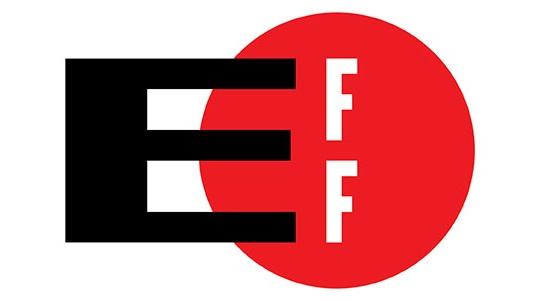
EFF petitions US government to resurrect abandoned games
The Electronic Frontier Foundation filed a petition to the Library of Congress and the United States Copyright Office this week over the modification of abandoned games, particularly those that require an online connection to prevent piracy. The EFF is seeking a change to current laws that would deem mods that strip out authentication checks as fair use of the software after developers take those servers offline. The foundation noted Civilization 5 and Mario Kart Wii as examples in its petition, though the list of eligible abandoned games goes back many years. Should the Library of Congress approve the request, legally-acquired copies of many of those games would be open to modification so players can enjoy them on third-party servers. The petition does note that MMOs and "persistent world" games would be exempt from the change, as their "audiovisual content is primarily stored on the developer's server and not in the client." [Image: Electronic Frontier Foundation]

Square Enix sues SNK over past copyright infringement allegations
Square Enix announced that it brought a declaratory judgment suit against SNK Playmore as a response to previous accusations of copyright infringement. SNK sued Square Enix in May, claiming the Final Fantasy publisher used copyrighted SNK characters without permission in the High Score Girl manga. SNK alleged that characters from The King of Fighters and Samurai Shodown were used more than 100 times without permission. Following the lawsuit, police collected evidence in early August from Square Enix's offices, and the publisher stated it "has been cooperating fully with police investigations since the domiciliary search, and will continuously maintain the cooperative stance with good faith." Square Enix is now seeking an authoritative opinion from the Osaka District Court to determine that it has not infringed on SNK's copyright and will "prove the point through civil procedures." [Images: Square Enix]

Google sees over 1 million daily takedown requests for pirate links
While sites like The Pirate Bay are busy improving the experience for the torrent-loving crowd, Google's facing the task of processing an extreme amount of removal request for pirate links. According to a recent transparency report on the matter, Google is now seeing more than 1 million DMCA takedown notices per day. In the previous week alone, for instance, the tech giant was asked to remove about 8 million results from its search engine. As TorrentFreak points out, the amount of copyright removal notices sent to Google has seen a tremendous spike in recent times -- it wasn't long ago that the number of takedown requests was in the low-hundreds for the entire year. With the growth of the internet as a whole, however, it's easy to see how that's come to be. You can peruse the report in full here, if you're into that sort of thing. [Image credit: will never stop us/Flickr ]

Monsters Ate My Birthday Cake dev accused of stealing artwork [Update]
Monsters Ate My Birthday Cake has been accused of copying its map artwork from another artist, Athens, Greece-based Ilias Sounas. The illustrator posted a blog comparing art they completed in 2012 for Karios Games' MonsterUp Adventures to that of SleepNinja's game, which was funded on Kickstarter to the tune of $26,096 in February 2013 and just launched this week on iOS and Android. "My dispute is over the game map, not the mechanics and overall style, which is identical to the world I had created for MonsterUp Adventures," Sounas told Joystiq. The blog compares the two games' monsters and overworlds, each being an island with markedly similar features such as trees, hills and shadows. Sounas began uploading his creations for the game to the Dribbble design community site in April 2012 as well as the Behance portfolio site in July 2012. Sounas said he contacted both SleepNinja and publisher Cartoon Network regarding the allegations and "their replies are pending." Likewise, Cartoon Network replied to an inquiry from Joystiq, noting the publisher is "looking into this" and "will be in touch with a response."

Editorial: Let Google be a little evil
Google's lawyers visited the Second Circuit Court of Appeals last week for a polite conversation with three judges and attorneys from the Authors Guild. You remember -- the book-scanning thing? Yes, the case is 7 years old and still unresolved. The Circuit Court is just a way station in a longer journey -- at issue is whether the Authors Guild's class action suit should be broken apart, forcing authors and publishers to confront Google individually. Google is going to win this thing eventually. If that makes Google evil, it is a necessary evil. The bigger question is about the lawfulness of Google's digital library quest, and the legitimacy of the Guild's copyright charges and request for damages. There are points of similarity to the music industry's litigation saga. And major differences. Google is going to win this thing eventually. If that makes Google evil, it is a necessary evil.

Project Tank tanked by World of Tanks
A while ago, Project Tank popped up on our radar for two reasons. First of all, it was a browser-based multiplayer tank-based combat simulator. Second, it bore a lot of similarities to the existing multiplayer tank-based combat simulator World of Tanks, enough that Wargaming.net brought out the copyright lawyers. A copyright infringement suit was filed today by Wargaming.net, claiming that Project Tank directly copies many elements of World of Tanks and violates some existing patents. Gamebox has responded to these claims on the official site for the game, claiming that Wargaming.net has engaged in "underhanded" actions to try to shut down the project. This marks the end of the closed beta for Project Tank, which is promising open beta in approximately a month. You can take a look at the side-by-side comparison from before and draw your own conclusions about whether Project Tank is being unfairly accused or entirely fairly accused.

YouTube still protected under DMCA, says Judge, Viacom sent packing
YouTube trends may have changed over the last few years, but the company's legal standing hasn't: according to a federal judge, the DMCA still protects the streaming site from Viacom's copyright claims. The ruling responds to Viacom's appeal of a 2010 case, which stated that YouTube couldn't be held responsible for copyright infringing content uploaded by its users. Viacom sought to revise the ruling, insisting that YouTube was "willfully blind" of the activity. That may be the case, but Judge Louis Stanton sees things differently. "Knowledge of the prevalence of infringing activity, and welcoming it, does not itself forfeit the safe harbor. To forfeit that, the provider must influence or participate in the infringement." Since YouTube doesn't pre-screen content before throwing it live, and because it always takes down infringing content upon request, it simply isn't liable. Viacom says that the decision "ignores the opinions of the higher courts and completely disregards the rights of creative artists," and promises to appeal the decision again with hopes of taking the case to a jury. Google, on the other hand, is playing it cool. "The court correctly rejected Viacom's lawsuit against YouTube, reaffirming that Congress got it right when it comes to copyright on the Internet. This is a win not just for YouTube, but for people everywhere who depend on the Internet to exchange ideas and information." Looking for a side to pick? Check out the court's full decision after the break.

Tattoo artist sues THQ over use of original ink in UFC Undisputed 2010, UFC Undisputed 3
A tattoo artist by the name of Chris Escobedo has filed a lawsuit against THQ over its supposedly unauthorized usage of a tattoo Escobedo designed. Specifically, Escobedo owns the copyright to a tattoo present on the virtual version of MMA fighter Carlos Condit in UFC Undisputed 2010 and UFC Undisputed 3.Escobedo's argument hinges on the idea that, despite being permanently affixed to a public figure, the tattoo's design still belongs to him, as he created it originally and never signed the rights to the design away to Condit. By digitally recreating that design without permission, THQ may have violated Escobedo's copyright on the work. The lawsuit also claims that THQ's usage of Condit's likeness on its website violates Escobedo's copyright as well.The lawsuit seeks compensation for "actual damages" caused by THQ's usage of the artwork, as well as "an order directing THQ to account to Mr. Escobedo for all gains, profits and advantages derived by them by their wrongful conduct, and to disgorge all profits obtained by their wrongful conduct." Gross.

Photographer Sabine Liewald sues Apple over copyright infringement
No stranger to copyright litigation, Apple will play the defensive role in a suit by photographer Sabine Liewald who alleges the company used a piece of her work without permission. According to details obtained by Patently Apple, the company contacted Liewald's agency, Factory Downtown, and requested a high-resolution version of a photograph titled Eye Closeup strictly for internal layout purposes. The photograph subsequently popped up on marketing materials for Apple's Retina-equipped MacBook Pro -- as seen above in the court document obtained by Patently Apple -- as well as in the keynote address revealing the new notebook. As you can imagine, this didn't sit well with the Swiss photographer, and she is now seeking to collect an unspecified figure for damages relating to the unlawful use of the image.

AT&T training document suggests ISPs are gearing up to beat piracy with internet restrictions
The fact that ISPs are working with the RIAA in a bid to squash piracy is far from new. A leaked document claiming to be AT&T training materials, however, suggests that the operator is about to stop talking, and start doing. According to TorrentFreak notifications will be sent out to customers on November 28th about the change in policy, with those suspected of illicit downloads receiving an email alerting them of the possible copyright infringement. We'd previously heard of a six-stage notification system, and this, too, is mentioned here with repeat offenders facing access to "many of the most frequently visited websites" restricted. Even stranger, is the talk of having to complete an online tutorial about copyright to get the restrictions lifted. As AT&T is part of the MPAA and RIAA-backed Center for Copyright Information, it's likely that the other members (Verizon, Comcast, Time Warner Cable and Cablevision), will be prepping similar plans. We've asked AT&T for confirmation directly, but for now keep an eye on the mail.

YouTube scales back automatic Content ID takedowns, improves appeals process
In the last several years Google has become quick to respond to complaints of copyright infringement. Unfortunately, its record in dealing with unfounded claims (specifically on YouTube) is a bit mixed. In particular the process for appealing a Content ID takedown has left many users frustrated and with little recourse in the event of a rejected dispute. And its the content owners themselves who make that decision. Starting today, even if a dispute is rejected, users can file an appeal that leaves a content owner with one of two choices -- rescind the complaint or file a proper DMCA takedown notice. To minimize the amount of appeals and disputes Google is also launching an improved Content ID algorithm that identifies potentially invalid claims and places them in a queue to be reviewed manually before takedowns are issued. For more, check out the source. Update: Wired has a statement from Google clarifying that the queue flagged content ends up in is for it to be reviewed manually by the content owner, not Google itself.














